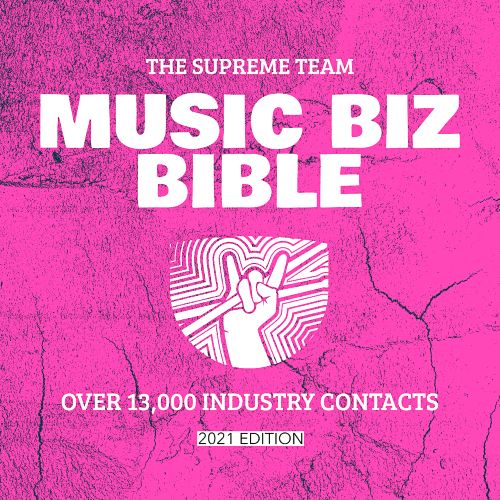[Product_Table id=’55274′ name=’allproducts’]
Supreme{PR} SoundCloud Promotion: Our focus is on Rap/Hip-Hop, Pop/Rock and EDM/Electronic genres. We can reach up to 80 Million followers. We can distribute to 2000+ SoundCloud Influencers.
—————————————————————————
By Disc Makers’ Author Randy Chertkow and Jason Feehan
When it comes to your music career, do-it-yourself doesn’t mean do-it-alone. Leverage key services and expertise and delegate important work so you can focus on things you are uniquely qualified for, like creating music.
There’s a lot that goes into building a music career if you’re going to make money with music. Fortunately, “do-it-yourself” doesn’t mean “do-it-alone.” In fact, there’s no longer a singular music industry, instead, there are industries around music. These industries offer solutions and expertise that, not long ago, only a music label could handle. Today, you can leverage these services and resources to offload work to a team of experts that you normally would have to do yourself. In this multi-article series, we’re going to explain all the major music business roles, the work each role performs, why what they do is helpful for your career, and give you options to outsource the work or empower you to do-it-yourself.
DIY is a team sport
If there’s one thing we hear from musicians once they find out what it takes to sustain a career in music, it’s, “There’s too much to do! How can you handle it all?” Musicians need to handle distribution, engage in social media, manage merch sales, book shows, perform live, produce and promote videos, pursue music licensing, and so much more. And that doesn’t even take into account making the music in the first place.
But instead of trying to get it all done alone, your success will come from prioritizing what you work on, focusing on one thing at a time, and delegating. In fact, the most successful musicians we’ve interviewed do the following:
Make good decisions about what NOT to do. Successful musicians choose to focus on critical tasks that are most likely to help them succeed at the moment and skip the rest for the time being. For instance, you become much more effective at prioritization when you base your decisions on a release plan, which structures what activities you need to do at what time. (For more about release plans, see our book, Making Money With Music.)
Offload work to external services. Successful musicians use external services, sites, and other digital tools to handle key aspects of their music business or speed up the work so they can do it faster themselves. Some services cost money or take a percentage of what you make while others are free. We’ll list useful tools, services, and resources throughout this article series.
Build a team of experts to help with the work. Not all tasks can or should be outsourced. You’ll want to create a team to take on this type of work. Some can be people you hire — other tasks can be outsourced to trusted and capable friends, family members, band members, and fans.
Music business roles
In this article series, we’re going to use the most common music and music business roles as a way to organize the tasks, activities, and work required to build and sustain your music career. By using roles as a framework, you will be able to decide what to do yourself and what to outsource so you can focus on other critical priorities, such as creating music.
The 34 roles are broken up into seven categories:
Music business roles
Live show business roles
Live show production roles
Product, merchandise, and distribution roles
Media exposure and publicity roles
Music creation, recording, and production roles
Video creation, recording, and production roles
We’ll offer a definition of each role and explain why it matters to help you decide if you should take on the work yourself or leverage sites and services to get the work done instead. (We’ll cover music business roles here and the next posts will dive into the other six.)
Music business roles are the typical ones required to build, manage, and run your music business. They’re there to help you make as much money as possible so you can continue to create music, play out, and do what you love.
Artist Manager
Who:
The person who oversees, coordinates, and manages the general business of the musician and coordinates the other 33 roles.
Why:
To manage all the activities of the musician — from studio to stage and all points in between. The manager can be thought of as the artist’s CEO and handles all the business aspects with a goal to ensure the business makes enough money to stay in business and grow the artist’s fan base.
When:
The manager is a special role since it oversees all roles and every task other roles are doing so everything is coordinated. And, for any role that is not filled, the manager has to find a way to handle the tasks and fill in any gaps.
Hire:
Artist managers are usually hired in person and are most often found through networking. Since they play a critical role, including helping to manage finances, the person you choose to manage your business has to be a trusted individual.
Service:
Once your career is at a certain point of success and you need a trustworthy, professional manager, this is a role you can’t outsource through an online service.
How to DIY:
This is a big topic. Both our book, Making Money With Music and our free newsletter cover the scope of what a manager needs to do for your music career.
Attorney
Who:
The person who handles contracts and other legal issues.
Why:
To advise you on legal issues and help you avoid legal pitfalls.
When:
You need an attorney to help form your business and legal entity; review or draft contracts and work-for-hire agreements, licensing agreements, and more; help with work visas for touring in foreign countries; defend you if you are being sued or if you need to sue someone.
Hire:
You can hire an attorney whenever you need one. Most are paid by the hour, though some may work for a set fee. To find one, you can canvas your local music contacts or do an online search, though we recommend contacting your local state bar association for a referral or to review their legal directories since they maintain lists of attorneys in good standing.
Service:
There are a ton of services (LegalMatch, FindLaw, RocketLawyer, and many others that will connect you with a lawyer who will charge by the hour. Some services, like LegalZoom and LegalSheild, allow you to prepay and subscribe.
How to DIY:
You need a law license to practice law, but that shouldn’t stop you from learning the law. One of our favorite practical books when it comes to business formation is Music Law: How to Run Your Band’s Business by Richard W. Stim.
Bookkeeper/Accountant
Who:
A bookkeeper handles financial books and your accountant handles accounting matters. Although they can be the same person, they are often separate.
Why:
The bookkeeper handles your books to track your income, expenses, and invoices. Your accountant prepares your tax forms, advises you on tax matters, and helps you make good financial decisions.
When:
You need a bookkeeper year-round to handle your books and keep track of the money coming in and going out. You need an accountant during key times within your business cycle: when forming your business, when you need to prepare and do your taxes each year, to help you with handling international tax issues, when prepping and embarking on foreign tours, when you expect large income (licensing fees), etc.
Hire:
You can hire a bookkeeper via sites that specialize in connecting people in need of help with those who have the skills and experience you need, such as Upwork, Fiverr, and TaskRabbit. We also recommend checking with your local Chamber of Commerce or the Better Business Bureau to make sure you get a trusted professional in good standing since this role handles your money. You can use the same services to find and hire an accountant though whenever you do, be sure to use the free service, CPAVerify, to verify the accountant has a CPA and is in good standing.
Service:
You can hire local companies to handle bookkeeping and accounting, but it’s not recommended to use a service where you can’t meet the people and establish a good relationship given the sensitive nature of managing your financials. This is typically something you need to hire a trusted company or do it yourself.
How to DIY:
There are many tools for bookkeeping. You can do this with a spreadsheet or free invoice templates such using Intuit’s invoice maker or templates on Google Docs. But if your business grows, you’ll eventually want bookkeeping software like Intuit’s QuickBooks or the free cloud-based accounting solutions, Wave and SlickPie. If you want to learn more, check out Bookkeeping All-In-One For Dummies.
Publisher
Who:
The person who registers your music and is tasked to generate more royalties and licensing income.
Why:
To ensure the music you release is registered with the copyright office (US only) and is registered to get all the performance, mechanical, and other royalties owed from being published.
When:
As soon as you have one song you’re about to release to the public.
Hire:
You can negotiate a deal with a professional music publisher to get your music out there and act as an agent for your compositions. Professional publishers actively promote and lobby music supervisors, media companies, and others to license your music. However, the most successful ones are well-connected and are choosy about which clients they take on. The ones that ask you for money to do this rather than a publishers cut of the proceeds are likely scams.
Service:
Publishing administration services are one-stop shops that do all the work of registering your music across the different performance royalty organizations (PROs) and may include registering with foreign PROs and mechanical royalty organizations for a set-up fee and/or cut of the royalties (anywhere from 15-30% of what you earn). One such example is CD Baby’s PRO publishing service. Note that, unlike a publisher, these services don’t actively market your music to generate new opportunities, they simply make sure your songs are properly registered so you get all the royalties owed to you.
How to DIY:
If you want to learn more about registering your music, check out our book, Making Money With Music, which includes step-by-step guides to ensure you get all the royalties you’re owed, worldwide. We also recommend The Plain And Simple Guide To Music Publishing by Randall D. Wixen.
— — —
Understanding the tasks that need to get done is an effective way to assess your options and assess who you might already know as you build your own team of experts to manage your music career. Keep in mind, to the extent you take on these roles yourself, you are building up skills that are marketable and can earn you money if you perform them for someone else. In other words, the skills you acquire to promote your music and build your business is good for your non-music resume as well.
Authors of the critically-acclaimed modern classic, The Indie Band Survival Guide, Billboard Magazine called Randy Chertkow and Jason Feehan “the ideal mentors for aspiring indie musicians who want to navigate an ever-changing music industry.” Their latest book, Making Money With Music (Macmillan) and free Making Money With Music Newsletter, help all musicians — from startups to pros — build a sustainable music business so you can make money in today’s tech-driven music environment.
Related Posts
DIY, but don’t do it alone
Make your music easy to license for TV, ads, and film
A release strategy to fill your yearly calendar
The qualities of a good artist manager
Musician networking tips: Grow your revenue and audience
This Disc Makers post How to build a team of experts to support your DIY music career appeared first and was stolen from OUR Blog Disc Makers Blog.
No related posts.




